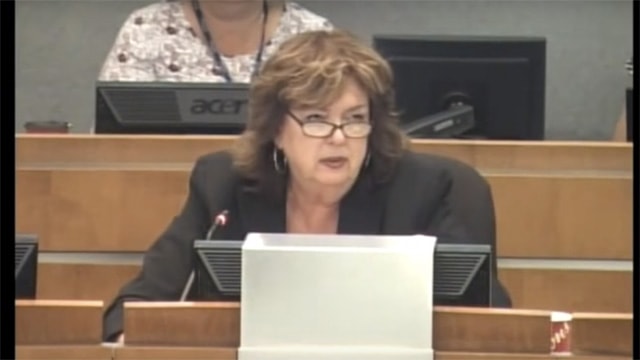Mississauga council strongly opposes Premier’s plan to give mayors greater power
Published August 17, 2022 at 2:49 pm

Mississauga Mayor Bonnie Crombie and City council are making clear their strong opposition to Ontario Premier Doug Ford’s plan to grant greater powers to mayors in Toronto, Ottawa and eventually other municipalities across the province.
City of Mississauga council unanimously approved a motion that formally lays out its opposition to the expansion of so-called strong mayor powers in Ontario municipalities.
The resolution was sent to the Province, MPPs and municipal associations to which Mississauga belongs.
Essentially, the City’s argument is that the municipality, and not specifically the mayor, should be given a larger role in key issues.
Earlier this week, Ford said he plans to expand the scope beyond Toronto and Ottawa to other municipalities as a way to get more badly-needed housing built.
Ontario’s Municipal Affairs and Housing Minister Steve Clark introduced the legislation last week, noting it would give the mayors of the province’s two largest cities veto powers over municipal bylaws that conflict with provincial priorities such as building housing.
Ford noted building more housing is at the top of his priority list and that in the coming months he’ll provide more information on how the “strong mayor” legislation will be expanded to other cities.
The legislation would also give mayors, and not council, the responsibility for preparing and tabling the city budget, appointing a chief administrative officer and hiring and firing department heads, except for statutory appointments such as an auditor general, police chief or fire chief.
Toronto Mayor John Tory supports the idea, while the outgoing mayor of Ottawa does not.

Mayor Bonnie Crombie says City council works well just as it is.
In supporting the Mississauga motion, which was introduced by Ward 5 Councillor Carolyn Parrish, Crombie noted she’s always “been a proponent of broad municipal reform, but not of this nature.
“I wanted recognition of the growing role that cities are playing, especially with respect to revenue tools, or making two-tier cities like Mississauga a standalone city. That’s the kind of reform I’m looking for.”
Crombie said the City faces a growing list of responsibilities from addressing housing affordability to tackling climate change, building transit, attracting new investment and dealing with mental health, and “I think it’s time the Province takes a look at how cities can be better supported in the 21st century.”
Crombie concluded by stating at last week’s council meeting that the City is structured effectively as it stands.
“I think we operate here on consensus. I think 90 to 95 per cent of our votes are unanimous,” she said. “My desire has always been to be that consensus builder. And we have a long history of dealing with a variety of issues without special powers (for the mayor) being needed or reserved in cases where action is needed.
“So, we encourage the Province to consult municipalities, municipal leaders and councils on broad-scale reforms and we look forward to being at the table for those discussions.”

Ward 5 Councillor Carolyn Parrish
In tabling the motion, Parrish said her biggest concern is that of the potential for an increase in partisan politics.
“They have a nice Progressive Conservative former leader mayor in Toronto and the mayor in Ottawa is not running, so I would imagine they’re going to have a prime chosen candidate there, and the problem with that is it’s introducing party politics,” Parrish argued. “So, I’m more concerned about the partisan politics. We all know in Toronto, people have leanings; they’re left, they’re right…but this will make it more formal like Quebec and BC where your party is actually on your election sign. So, it builds another level that you can move politicians, train them and move them up through Queen’s Park and then to Ottawa.”
Parrish concluded, saying the most important “whereas” in the motion is the one that reads, “whereas today non-partisan municipal councillors are free to listen to debates and represent the needs of their specific communities without partisan policy restraints, change positions and decide issues often by consensus…”
Which “is what we often do,” the councillor added.
INsauga's Editorial Standards and Policies


